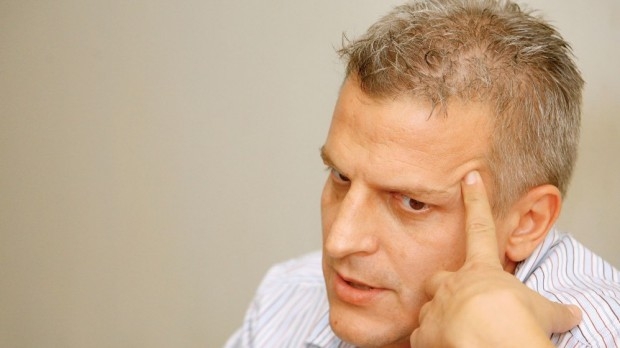11.12.2014Minster Moskov and representatives of Roma organizations and initiative groups discussed the ethnic tension and concrete measures for facilitating the work of the emergency units
As a response to the extreme reaction of non-governmental organizations and activists to the statements of the Minister of health regarding the emergency medical care in Roma neighborhoods, a meeting between the political cabinet of the Ministry and Roma organizations was organized. Participants in the meeting were the Minister Petar Moskov and the Deputy Ministers Vanio Sharkov and Adam Persensky as well as representatives of organizations working on Roma integrations, Roma activists and initiative groups.
Teodora Krumova for Center Amalipe and Gancho Iliev for World without borders Association insisted that two problems must be clearly delineated: on one hand the long existing unsolved problems in the emergency care and the problems in healthcare in general which lead to accidents, and on the other hand – the rhetoric undertaken that lies on ethnic element and causes subsequent wave of negative attitudes and confrontation not only between the medical community and the Roma community, but also between different ethnic groups in general. Theodora Krumova clearly underlined that the words spoken by the Minister publicly, even if they are not backed by an order on his part, is taken literally in the healthcare system and society as a whole and legitimize the "hate speech". This has lead already to a denial of the emergency ward units to visit addresses located in Roma neighborhoods, according to signals received by Center Amalipe. In their refusal, they pleaded the words of the Minister.
Teodora Krumova and Gancho Iliev presented to the Minister a Declaration signed by the representatives of 65 non-governmental organizations, schools, parents' clubs, local clubs, centers for community development and independent experts which Declaration determines the Minister's statements as unacceptable and threatening the constitutional democratic order, and any potential order that allows teams of emergency units not responding to the signals coming from the Roma neighborhoods - as violating the Constitution and laws.
During the meeting, participants identified specific measures that would reduce the problem. They emphasized that where field work is carried out, problems do not exist. An example are centers for community development created by Center Amalipe, social and health centers and the health mediators. The fact is that where they exist and where there is actual working organization or local group in the field, there is effective dialogue between health authorities and the local community. Sergei Sashev, local moderator at Center Amalipe gave the example of Pavlikeni Municipality, where although there is only one ambulance covering 18 villages so far incidents since the beginning of the work of local clubs for community development have not happened. This is due to the already built mutual trust between the community on one hand and the team of emergency aid as well as increased awareness and changed attitudes in the community. The fact is that it is the municipalities where the problems occured in the Roma community are those that have refused so far to appoint health mediators - Pernik, Botevgrad, etc.
Number of other examples that work in the field of healthcare were shown. In the end of the meeting a consensus was reached on the following:
· Ethnicizing the problem will not continue and when it is spoken about sending police patrols, it will affect not whole neighborhoods but individual addresses where there had been previous incidents repeatedly - it will happen wherever the addresses are - the central part of Sofia, Lozenets quarter or Filipovtsi, for example.
· At the forthcoming meeting of the team of the Ministry of Health with the National Association of Municipalities in Bulgaria, Minister Moscow explicitly will put before the Association the acute need for support of the Centers for community development / social and health centers and the appointment of more health mediators.
· Ministry of Health will send letters to the Regional Health Inspectorates to initiate local meetings between representatives of local and regional health institutions (including Emergency care centers) and representatives of the Roma community (Centers for Community Development, NGOs, local activists, mediators, etc.). to draw a working plan in each area. Repeatedly emphasized was that the Roma community has a huge resource that can and should be used to solve the problems in the healthcare field.
· The Ministry will restore the practice set in the plan of the Health Strategy for Disadvantaged Persons belonging to ethnic minorities to organize training courses in biology and chemistry for students of Roma origin who wish to study in medical universities and will seek ways to support the program for Roma students studying in medical universities.
· In the long term, special courses for work in the Roma community must be set in the university curriculum of the medical universities as well as to promote greater involvement of Roma professionals in the health system.









